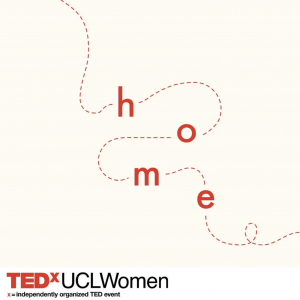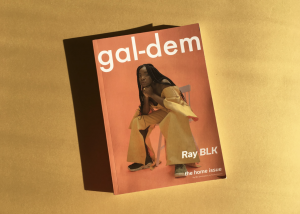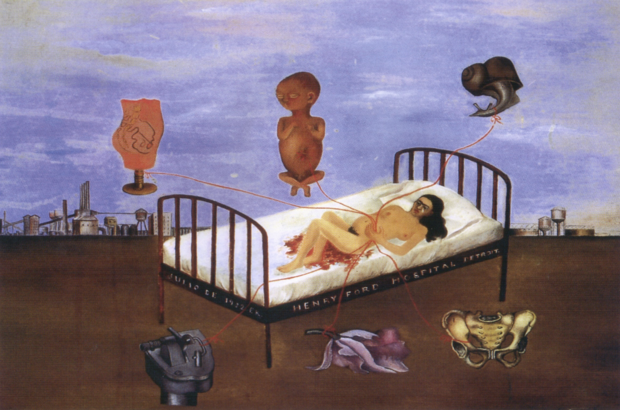SHALAKA BAPAT discusses what ‘Home’ means to the speakers at the TEDxUCLWomen event.
Throughout history, women have been confined to domestic, private spaces. ‘A woman’s place is at home,’ ‘a woman’s place is in the kitchen’ and ‘go make me a sandwich’ are all phrases that I daresay many women have heard (from men – who else?). However this year’s TEDxUCLWomen event saw the theme of ‘home’ alternatively as a space of agency, of action and of comfort.

Last year’s theme was ‘Intersect’, and the event very much continued in this vein. Unlike many platforms for ideas and culture, TEDxUCLWomen has diversity at the very core of its being. This was visible in so many aspects: from the team of incredible women who organised the event, the physical accessibility of the space, the subsidised tickets for community groups, and the vegetarian food that was served. It is the small but crucial details like these that truly foster inclusivity. For me, the space felt like ‘home’. But not every space we have to exist in is like this – something explored by Subhadra Das in the most moving talk of the day.
Tracing her family’s migration from Bengal to Abu Dhabi and her own migration from different international schools and cultures to UCL, Das spoke about herself as a ‘third culture kid’ – someone who was raised in a different culture to their parents and has encountered her parents’ childhood only through movies, anecdotes and short visits to the motherland. This is a story so many children of immigrants can relate to: speaking one language at home and another at school. Shifting your identity and accent depending on the space you are in. Holding on to your heritage even when it slips away. The most poignant moment of the day was when Das recounted her father’s sorrow when he realised that giving her the best education possible would come at a cost. ‘He could see that it was much more likely that, in any given situation, a line from Robert Frost would pop into my head than that of a Bengali poet’. Indeed, ‘Home is the place where, when you have to go there/ They have to take you in’, a line from Frost’s Death of a Hired Man, was Das’ starting point for her discussion of home.
Having spent the majority of her adult life working as a museum curator at UCL, Das thinks of the university as ‘home’. Here, she has come into contact with UCL’s darker history on multiple occasions. She spoke about Sir Francis Galton, the 19th century founder of the ‘Eugenics’ movement that UCL supported and funded – a name we see on a Laboratory and Lecture Theatre here on campus, a name we tend to see as we pass by but not notice. In her work, Das realised that the place she called home had supported movements that questioned her humanity and argued for people like her to not exist. What was so uplifting was her refusal to shy away from highlighting her home’s dark past and engage with it. Currently, she is creating an exhibition that examines UCL’s entanglement with the history of scientific racism. For her, home has not been a safe space, but rather, a space that she is healing and improving. ‘Home is the place that when I got to, I tried to make it better.’
Liv Little and Charlie Brinkhurst-Cuff similarly have a desire to improve their comfort zone, their ‘home’ of sorts, by fighting to make journalism more diverse. In their TedxUCLWomen talk, the founders of Gal-dem – a creative movement centred around women of colour, with an online and print magazine and accompanying exhibitions, panels and parties – discussed navigating the world of journalism with ‘Rushing Women of Colour Syndrome’. They are busy young women of colour in a world that demands double the work for half the credit, and while Gal-dem has been incredibly successful, both of them still feel as though they do not deserve this success – that they do not belong. This form of “imposter syndrome,” they said, is especially prevalent among women of colour, and their talk explored how as a community, they support each other.
‘Imposter syndrome’ is just one manifestation of a broader challenge to society – that of demanding equal respect for equal work. This was taken up by another speaker, Halima Gosai Hussain, whose work is geared primarily around religious spaces. Her aim is to promote and develop the Inclusive Mosque Movement, where women lead mixed-gender prayers and the mosque spaces are accessible for those of all abilities. This is a radical shift from the segregated, patriarchal mosques that Hussain grew up attending. The IMI’s work is pushing the boundaries of the ways that Islam can be interpreted.

The other talks of the day continued this exploration of ‘home’, and what we, as women can do, can change, and can protect. Lauren Bowker, a designer, spoke about magic and how the intersections between science, design and the unknown have helped her create clothes that tell us more about ourselves. Shelley Sacks discussed how one should recognise their “inner home” – a mind space that is present in us all, that we can change and expand to create new solutions.
Home is not where the heart is, but rather the place where we sometimes need to recognise a dark past to transform it into a place of value. Each of the talks explored the theme of ‘Home’ in relation to identity: what it meant to have a certain identity in a certain space. The women who spoke centred themselves in their narratives, even if their selves were rushed and unsure and still exploring. Hussain, Bowker, Little, Brinkhurst-Cuff and Das are moving through this world and creating spaces where they feel more at home and where they feel like themselves. Their assertion on space, their claim to existing in a world that is rarely made for them, with the majority of them being women of colour, was validating and a joy to see. As a woman of colour myself, I have come to realise that there are not many spaces where we can feel at home – where we can make mistakes and grow. And yet, TedxUCLWomen created a whole day where we could see other women doing this – and learn how to do it for ourselves.
Featured image courtesy of www.FridaKahlo.org.





